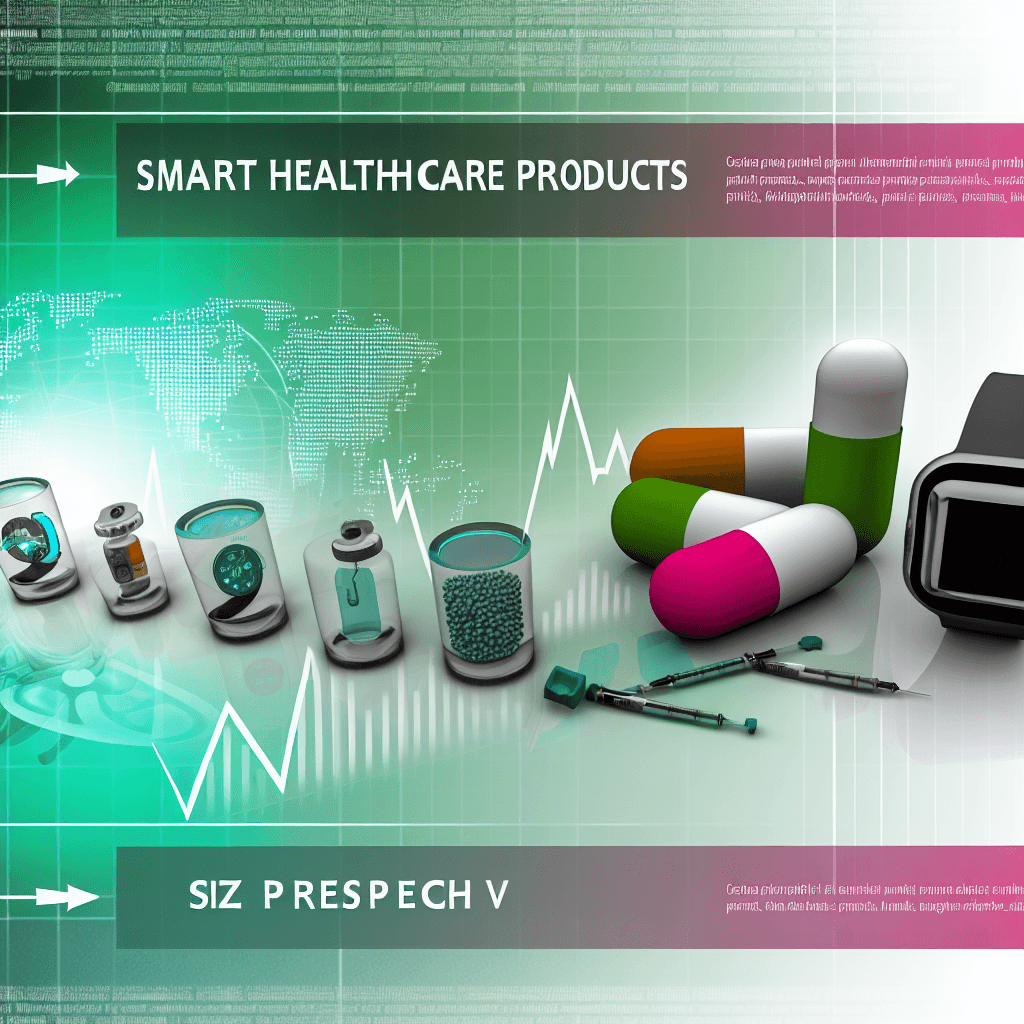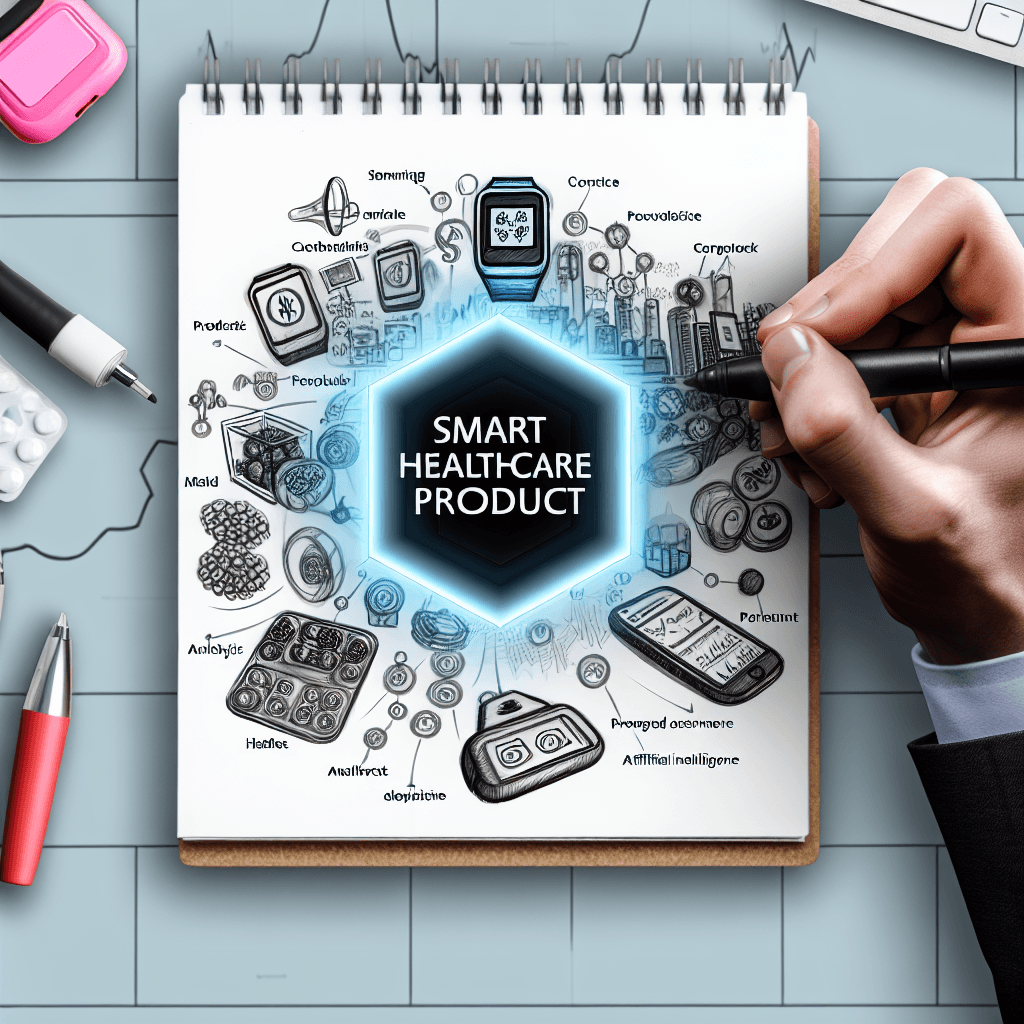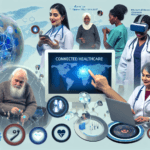Explore the smart healthcare products market size and forecast in our comprehensive industry outlook.
In-Depth Industry Outlook: Smart Healthcare Products Market Size, Forecast

Table of Contents
In-Depth Industry Outlook: Smart Healthcare Products Market Size, Forecast

The healthcare industry is undergoing a significant transformation, driven by the rapid advancement of technology. Among the most impactful developments is the rise of smart healthcare products, which are reshaping the way healthcare is delivered, monitored, and managed. This article provides a comprehensive analysis of the smart healthcare products market, exploring its size, growth trajectory, key drivers, challenges, and future prospects.
Understanding Smart Healthcare Products
Smart healthcare products refer to the integration of advanced technologies such as the Internet of Things (IoT), artificial intelligence (AI), wearable devices, and telemedicine into healthcare services. These products aim to enhance the efficiency of healthcare delivery and improve patient outcomes by providing more personalized and timely medical interventions.
Market Size and Growth Forecast
The global market for smart healthcare products has witnessed substantial growth over the past few years and is expected to continue its upward trajectory. According to a report by Grand View Research, the global smart healthcare market size was valued at USD 143.6 billion in 2019 and is projected to reach USD 528.9 billion by 2027, growing at a compound annual growth rate (CAGR) of 16.2% during the forecast period.
Key Drivers of Growth
- Increasing Healthcare Costs: As healthcare costs continue to rise, there is a growing demand for smart healthcare products that can provide cost-effective solutions without compromising the quality of care.
- Aging Population: The world’s aging population is increasing the burden on healthcare systems. Smart healthcare products can help in managing chronic diseases more effectively and remotely, reducing the need for frequent hospital visits.
- Technological Advancements: Innovations in IoT, AI, and data analytics are enabling more sophisticated and efficient healthcare solutions, driving the adoption of smart healthcare products.
- Government Initiatives: Several governments worldwide are initiating policies to promote the adoption of smart healthcare technologies, further fueling market growth.
Challenges to Market Growth
Despite the promising growth prospects, the smart healthcare products market faces several challenges that could impede its progress:
- Data Privacy and Security: The use of digital technologies in healthcare raises significant concerns about patient data privacy and security. Ensuring robust cybersecurity measures is crucial for the adoption of smart healthcare products.
- High Initial Costs: The initial investment required for implementing smart healthcare solutions can be a barrier for small and medium-sized healthcare providers.
- Regulatory Compliance: Navigating the complex regulatory landscape of healthcare can be challenging for market players, especially in regions with stringent regulations.
Regional Insights
The adoption of smart healthcare products varies significantly across different regions:
- North America: Leads the market due to advanced healthcare infrastructure, high healthcare spending, and the presence of major technology companies.
- Europe: Strong government support and high awareness about smart healthcare technologies drive the market in Europe.
- Asia-Pacific: Rapid economic growth, increasing healthcare expenditure, and technological adoption are propelling the market in Asia-Pacific.
Leading Market Players and Innovations
Several key players dominate the smart healthcare products market, each contributing to its growth with innovative products and solutions:
- Medtronic: Known for its advanced insulin pumps and continuous glucose monitoring systems.
- Philips Healthcare: Offers a wide range of smart diagnostic and monitoring devices.
- GE Healthcare: Focuses on IoT-enabled medical devices and imaging equipment.
Innovations such as remote patient monitoring devices, smart pills, and connected inhalers are some examples of how companies are transforming the landscape of healthcare.
Case Studies
Several case studies highlight the impact of smart healthcare products on improving patient care:
- Remote Patient Monitoring: A study conducted by the Veterans Health Administration found that the use of remote patient monitoring systems led to a 25% reduction in bed days of care and a 19% reduction in hospital admissions.
- Smart Inhalers: Smart inhalers equipped with sensors have been shown to improve medication adherence and patient outcomes in asthma and COPD patients.
Conclusion and Future Outlook
The smart healthcare products market is poised for significant growth, driven by technological advancements, increasing healthcare costs, and a growing emphasis on personalized healthcare. While challenges such as data security and high initial costs exist, the benefits offered by smart healthcare solutions, such as improved efficiency and better patient outcomes, are expected to continue driving the market forward. As technology continues to evolve, the future of healthcare looks increasingly interconnected and intelligent, promising better care delivery for all.
In conclusion, the smart healthcare products market represents a dynamic and rapidly evolving industry with the potential to revolutionize healthcare practices worldwide. Stakeholders in the healthcare sector must navigate the challenges and leverage the opportunities presented by this technological evolution to stay competitive and provide effective healthcare solutions.








